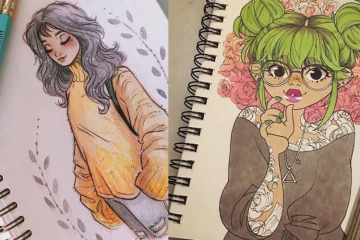Relationships are intricate webs of emotions, expectations, and communication styles. At times, these dynamics can become tangled, leading to misunderstandings, conflicts, and a sense of disconnect between partners. While couples therapy is a common approach to address these issues, individual counselling also plays a crucial role in supporting relationship harmony. In this article, we delve into the intricacies of how individual counselling can untangle the knots within a relationship and pave the way for greater harmony and understanding.
Individual Counseling In The Context Of Relationships
Individual counselling, often referred to as therapy or psychotherapy, is a process where individuals work with a trained therapist to explore their thoughts, feelings, and behaviours in a safe and confidential environment. While it may seem counterintuitive to seek individual counselling for issues within relationships, it can be highly beneficial for several reasons.
- Self-Exploration And Awareness: Individual counselling provides an opportunity for each partner to delve into their own inner world. Through self-reflection and introspection, individuals can gain a deeper understanding of their emotions, triggers, and personal histories that may influence their behaviour within the relationship. This self-awareness lays the foundation for personal growth and enables individuals to identify patterns that may be contributing to relationship challenges.
- Addressing Personal Issues: Relationship discord is often fueled by unresolved personal issues such as past traumas, insecurities, or unmet needs. Individual counselling offers a supportive space for individuals to address these underlying issues outside of the relationship context. By working through these challenges independently, individuals can develop healthier coping mechanisms and cultivate a stronger sense of self, which, in turn, positively impacts the dynamics of the relationship.
- Enhancing Communication Skills: Effective communication is vital for the success of any relationship. Individual counselling provides an opportunity for individuals to improve their communication skills by learning how to express their thoughts and emotions assertively, listen actively, and navigate conflict constructively. These enhanced communication skills can foster greater understanding and empathy between partners, leading to improved connection and intimacy.
- Managing Stress And Anxiety: Stress, anxiety, and other mental health issues can significantly impact the dynamics of a relationship. Individual counselling equips individuals with coping strategies to manage stressors more effectively and cultivate resilience in the face of challenges. By addressing their mental health concerns, individuals can alleviate the strain on the relationship and create a more supportive environment for themselves and their partners.
- Setting Boundaries And Establishing Identity: Maintaining healthy boundaries is essential for preserving individual autonomy and fostering mutual respect within a relationship. Through individual counselling, individuals can explore their values, needs, and boundaries and learn how to assertively communicate and uphold them in their interactions with their partners. This clarity in boundaries strengthens the foundation of the relationship and reduces conflicts stemming from misunderstandings or crossed boundaries.
The Role Of Individual Counseling In Relationship Harmony
Now that we’ve explored the ways in which individual counselling can benefit individuals within a relationship, let’s examine how these individual gains translate into greater harmony and cohesion between partners.
- Cultivating Empathy And Understanding: As individuals gain insight into their own thoughts, feelings, and behaviours through individual counselling, they also develop a deeper sense of empathy and understanding towards their partner. By recognizing their own vulnerabilities and struggles, individuals become more compassionate towards their partner’s experiences, fostering a culture of empathy and support within the relationship.
- Breaking Negative Patterns: Individual counselling provides individuals with the tools and insights needed to break free from negative patterns and dynamics that may be hindering the relationship. Whether it’s addressing unhealthy communication habits, overcoming trust issues, or navigating past traumas, individual counselling empowers individuals to disrupt destructive patterns and cultivate healthier ways of relating to each other.
- Fostering Personal Growth And Independence: A healthy relationship is built on a foundation of mutual respect and support for each other’s growth and individuality. Through individual counselling, individuals have the opportunity to focus on their personal growth and development outside of the relationship context. This investment in personal growth not only enriches the individual’s life but also contributes to the overall health and vitality of the relationship.
- Strengthening Resilience: Relationships inevitably face challenges and setbacks along the way. Individual counselling equips individuals with the resilience and coping skills needed to navigate these challenges effectively. By building emotional resilience, individuals can weather the storms together, emerging stronger and more connected than before.
Conclusion
In the intricate dance of relationships, individual counselling serves as a powerful tool for untangling the knots that may impede harmony and connection between partners. By fostering self-awareness, addressing personal issues, enhancing communication skills, and promoting personal growth, individual counselling lays the groundwork for greater empathy, understanding, and resilience within the relationship. As individuals embark on their journey of self-discovery and healing, they not only transform themselves but also nurture a relationship that thrives on mutual respect, support, and love.



